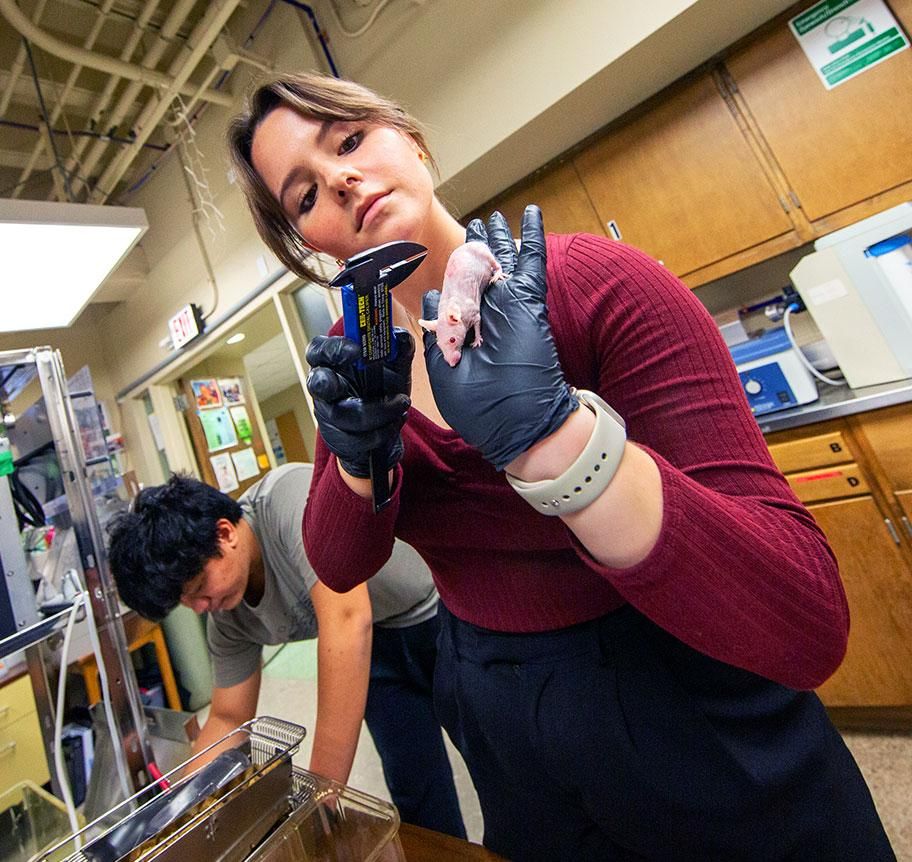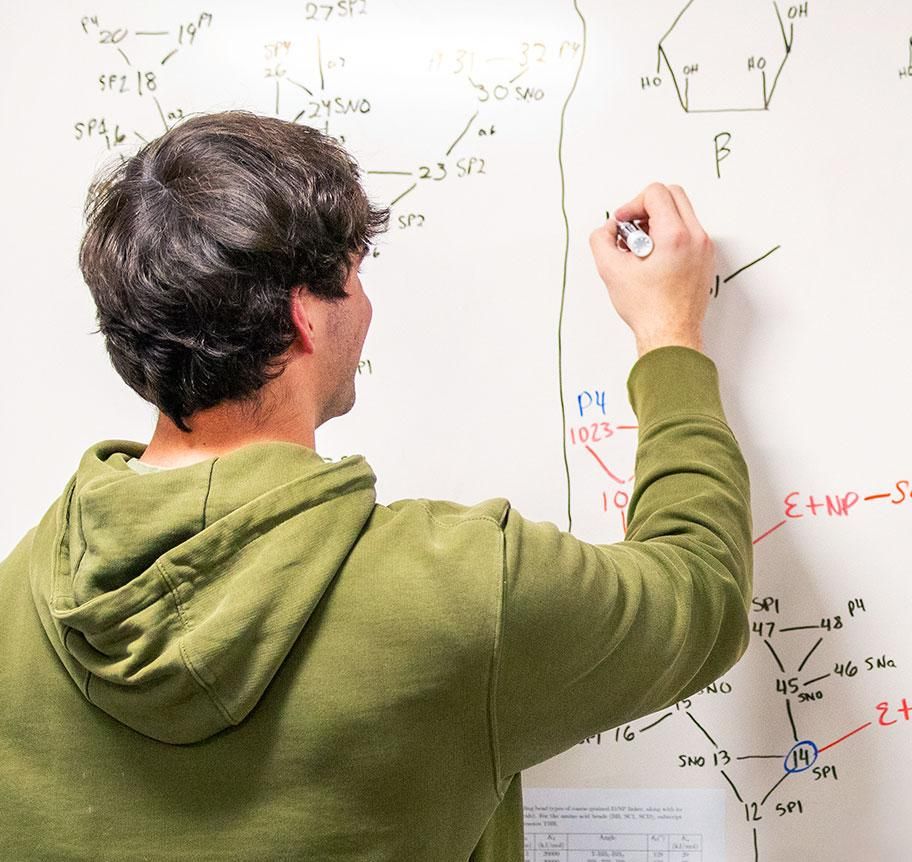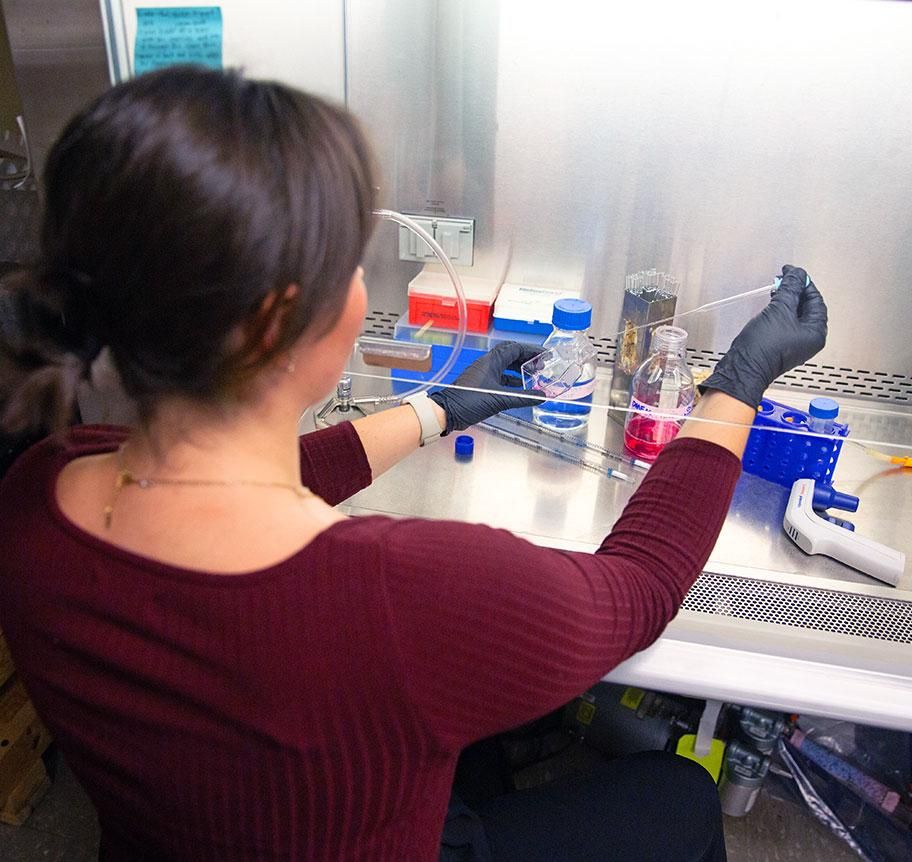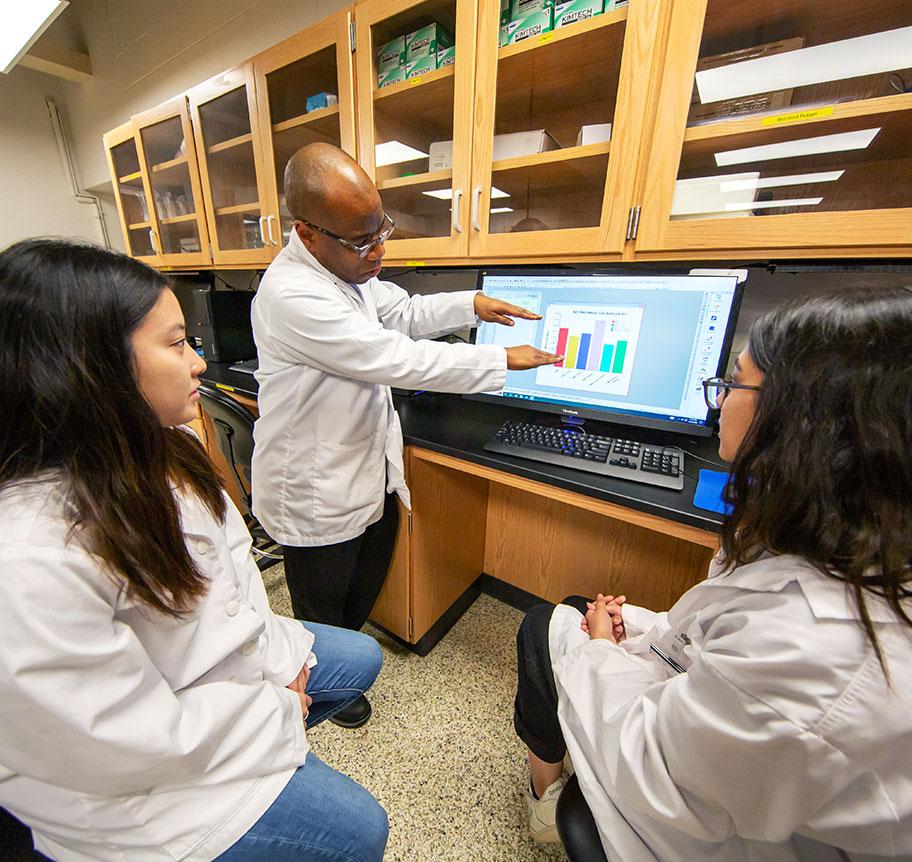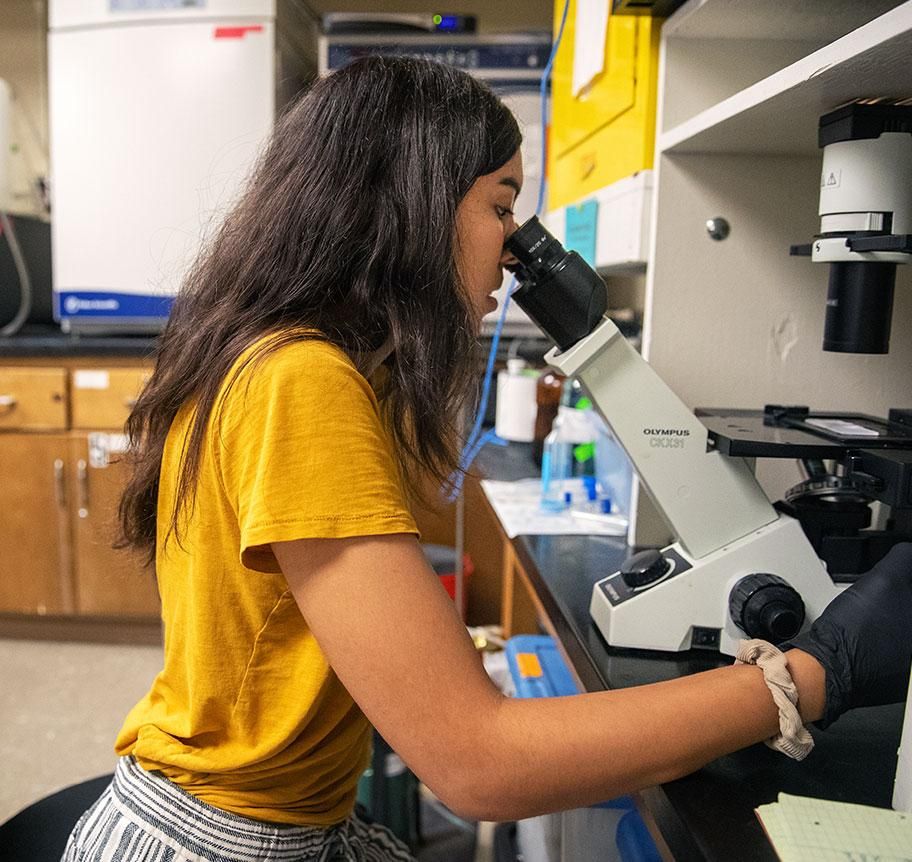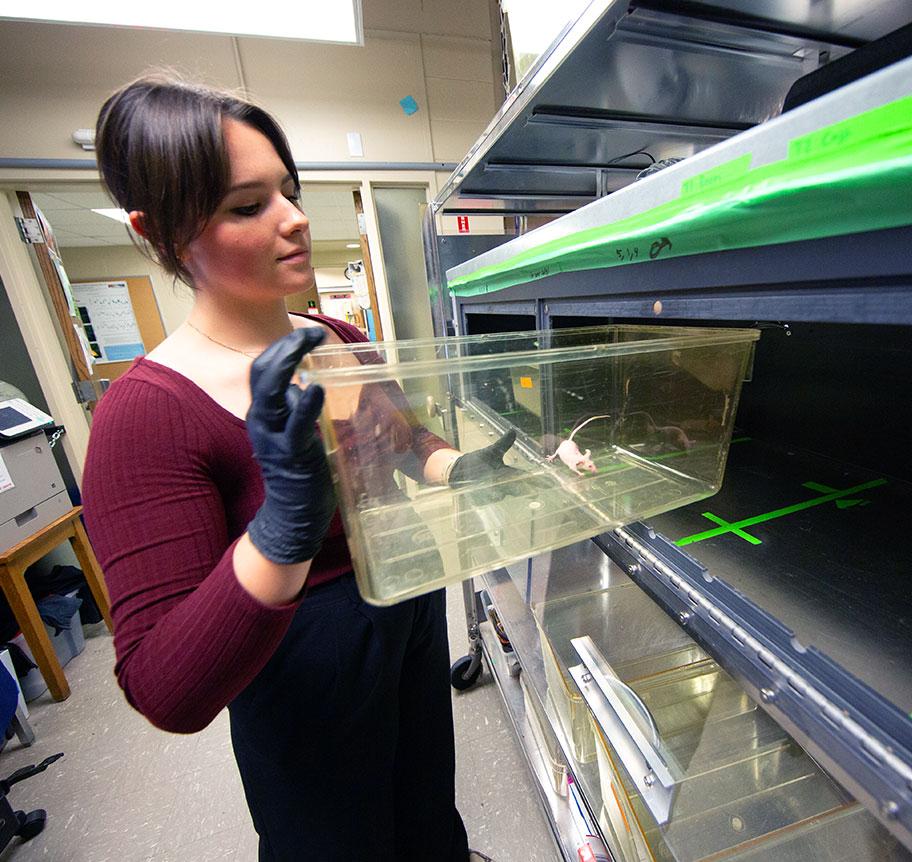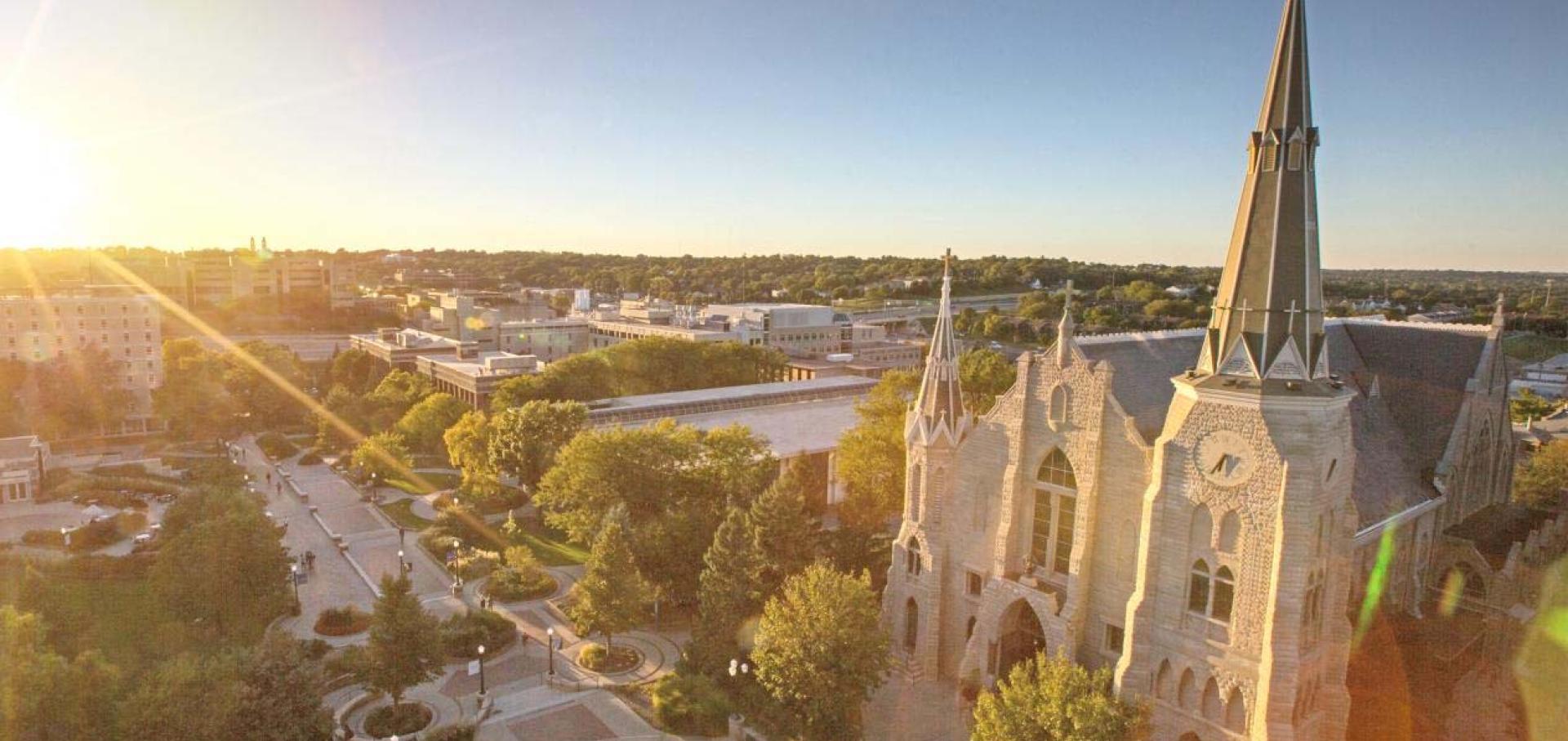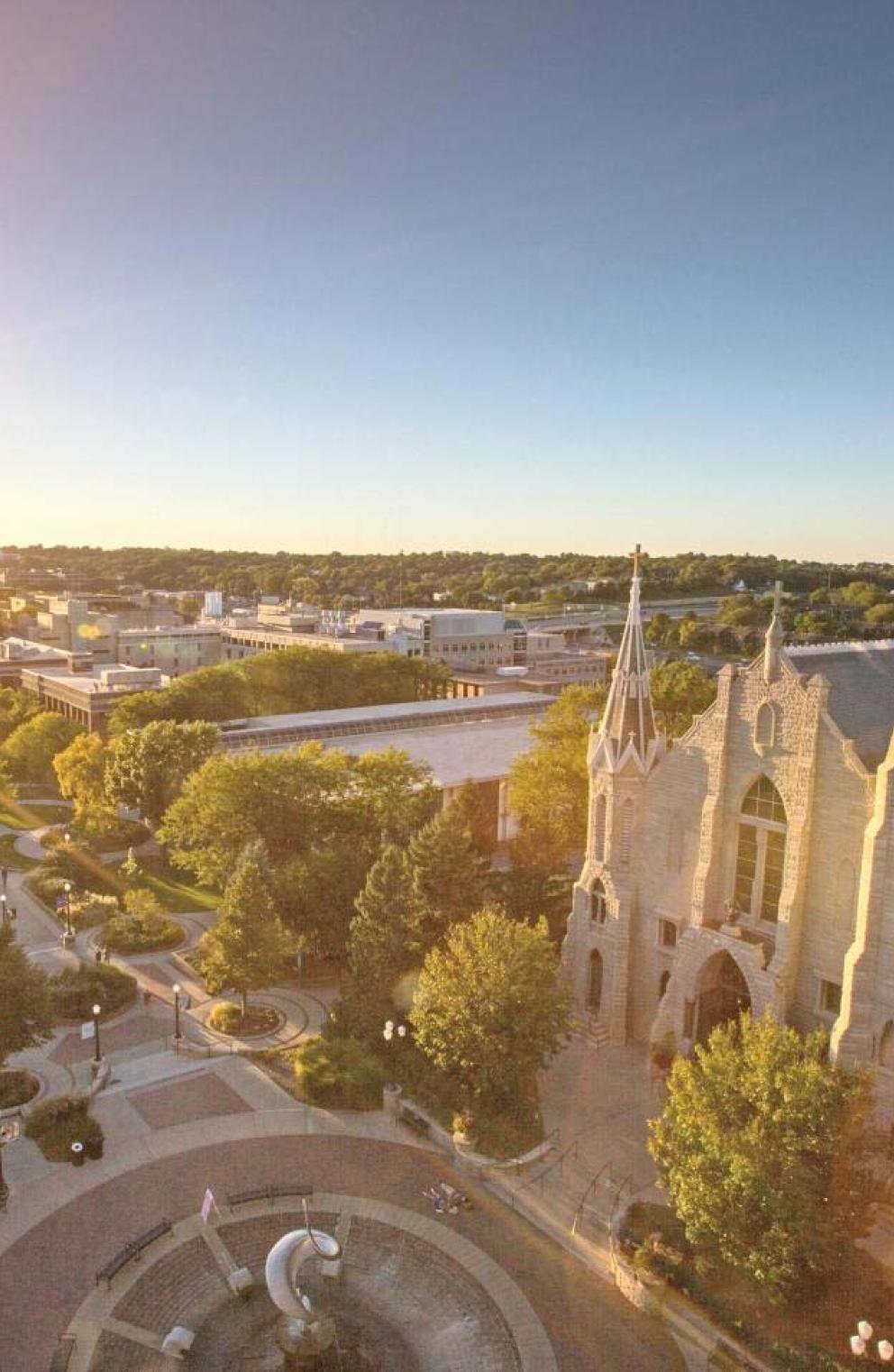Biomedical Physics (BS and BSPhy)
If you’re interested in a career in medical physics, biomedical engineering or biophysics, a biomedical physics major is the place to start. You’ll gain a solid foundation in physics as applied to biological systems and medicine, with the flexibility to shape the major toward your specific career goals.
Learn how to take an interdisciplinary approach to tackling some of the most challenging problems, such as imaging biological systems, the physics of cancer and the computational modeling of complex diseases such as Alzheimer’s and Parkinson’s. Creighton’s biomedical physics major can help you make a difference in the lives of others.
Program Details
Program Goals
Majoring in biomedical physics will give students:
- A deep understanding of fundamental physics as applied to biological processes and systems
- An interdisciplinary experience that integrates courses from chemistry, biology, physics and mathematics with a high degree of flexibility
- Preparation for careers in biomedical engineering, biophysics, medical physics or medicine
Students will explore:
- Conceptual problem solving
- Application of mathematics to physics
- How to model and quantify new phenomena and systems
- Design, measurement, and analysis techniques required in the laboratory
- How to work as members of a team and contribute effectively to group deliverables
- How to synthesize current knowledge and apply it to new situations
- How to work through ethical issues in physical science
- How to effectively communicate complex scientific ideas to various audiences through both writing and public speaking
Curriculum
In the biomedical physics program, you’ll take courses in biology, chemistry, calculus and more. Explore the full curriculum.
To declare a major in physics, a student must have completed one of the general physics sequences: PHY 201 and PHY 222 or PHY 213 and PHY 214 or PHY 221 and PHY 222 or received an “A” or “B” in PHY 201, PHY 213, or PHY 221.
Admissions Requirements
Creighton admissions are based upon:
- High school GPA
- ACT or SAT scores*
- Extracurricular activities
- Personal statement to demonstrate creative abilities not reflected in your transcripts
- Recommendation from high school counselor
- Honors sections and advanced placement courses will enhance a candidate’s application
*For students who are choosing to apply test-optional, ACT/SAT exam scores are not required at the time of application for admission.
Current students, see the University catalog for specific requirements for admission to the physics major.
Dates & Deadlines
Applications for the fall semester open on Aug. 1 of the prior year. For scholarship consideration, the earlier you complete your undergraduate application, the better. For up-to-date deadlines, visit our admissions page.
Tuition & Financial Aid
Tuition rates are updated each year. Visit our financial aid site to learn more about the cost of attendance.
Financial Aid
Creighton University’s Financial Aid Office administers over $200,000,000 in student aid each year from federal, state, institutional and private sources.
To help make your undergraduate studies at Creighton University more affordable, we encourage you to file the FAFSA to apply for financial assistance. A variety of scholarships are also available.
Creighton’s biomedical physics program is designed to combine a solid foundation in physics with adaptability to a wide range of medical and biomedical careers. Graduates with solid scientific backgrounds are in high demand.
Graduates have entered a variety of engineering fields, including biomedical, civil, mechanical and electrical engineering. Recent physics graduates have accepted employment at:
- University of Iowa
- Fidelity National Financial
- University of Nebraska Medical Center
- Capuchin Volunteer Corps
- Cerner Corporation
The acceptance rate for Creighton physics majors applying to graduate or professional programs is over 95%. Creighton physics graduates have been accepted to graduate programs at:
- University of Wisconsin-Madison
- Cornell University
- Tulane University
- Notre Dame
- University of Rochester
- Arizona School of Dentistry and Oral Health
- Rice University
- Johns Hopkins University
- Massachusetts Institute of Technology
- Mayo Catholic University
Undergraduate and graduate physics students currently participate in research projects in areas such as:
- Biophysical optics
- Computational molecular biophysics
- Translational biomedical physics
Other non-biophysics research areas in the department include:
- Condensed matter/glass physics
- Cosmic ray astrophysics
- High energy nuclear physics
- Laser-cooled atoms
- Astro-particle physics and cosmology
- Observational astrophysics
Visit the Center for Undergraduate Research and Scholarship or the physics department research page for more information.
Career Options
Our programs lay the foundation for careers in fields, such as:
- Biomedical engineering
- Biophysics
- Medical physics
- Medicine, dentistry and other health careers
- Radiological physics
- Nuclear medicine
- Research-based roles at medical technology companies
- Other fields of engineering such as biological/chemical engineering










